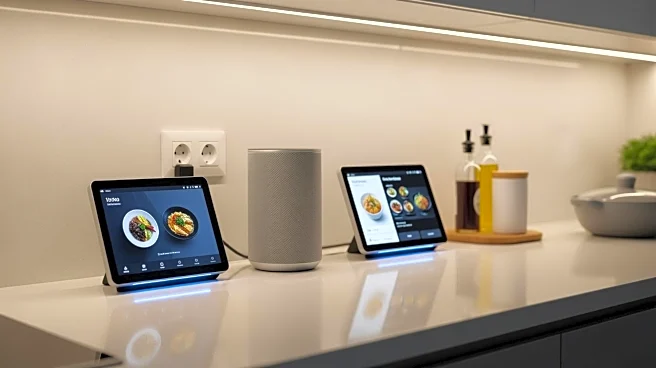What's Happening?
Smart kitchen technology has evolved significantly since the 1930s, offering a range of appliances that connect to mobile devices and automate tasks. These innovations include coffee makers that sync with
smartphones, fridges that order groceries, and ovens that preheat remotely. The technology aims to simplify daily kitchen tasks, making them more enjoyable and accessible, particularly for individuals with disabilities or those living in assisted living communities. Features such as voice control, customizable appliances, and self-cleaning functions are designed to enhance convenience and efficiency in the kitchen.
Why It's Important?
The integration of smart kitchen technology is transforming how people interact with their cooking spaces, offering significant benefits in terms of efficiency and accessibility. For individuals with cognitive impairments or physical disabilities, these technologies provide a means to manage kitchen tasks more independently. Additionally, the energy-efficient designs of smart appliances contribute to sustainability efforts by reducing energy consumption. As these technologies become more prevalent, they are likely to influence the design and functionality of future kitchens, making them more inclusive and environmentally friendly.








